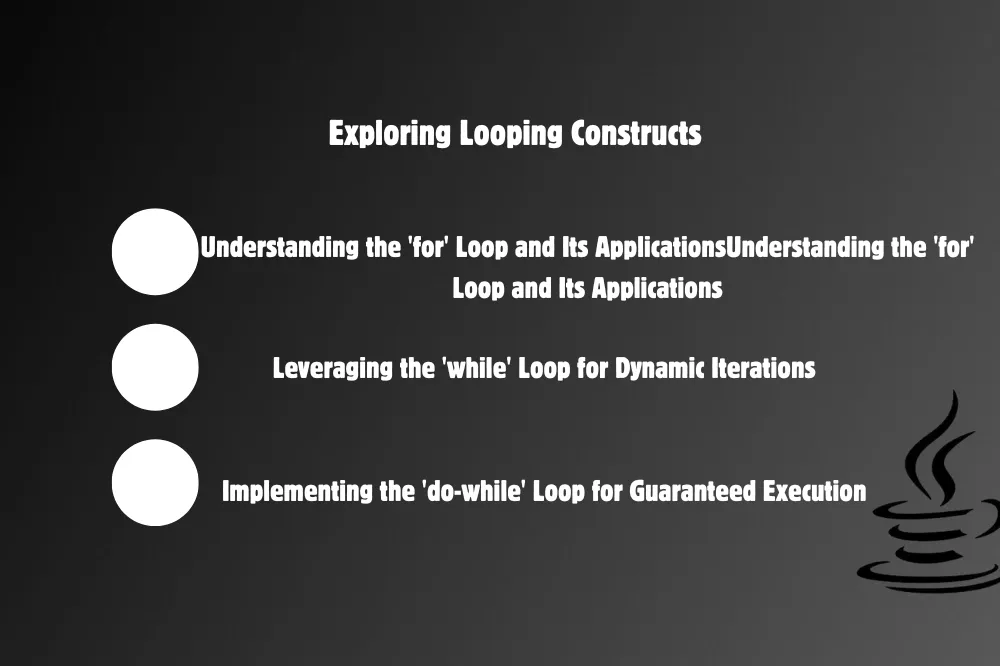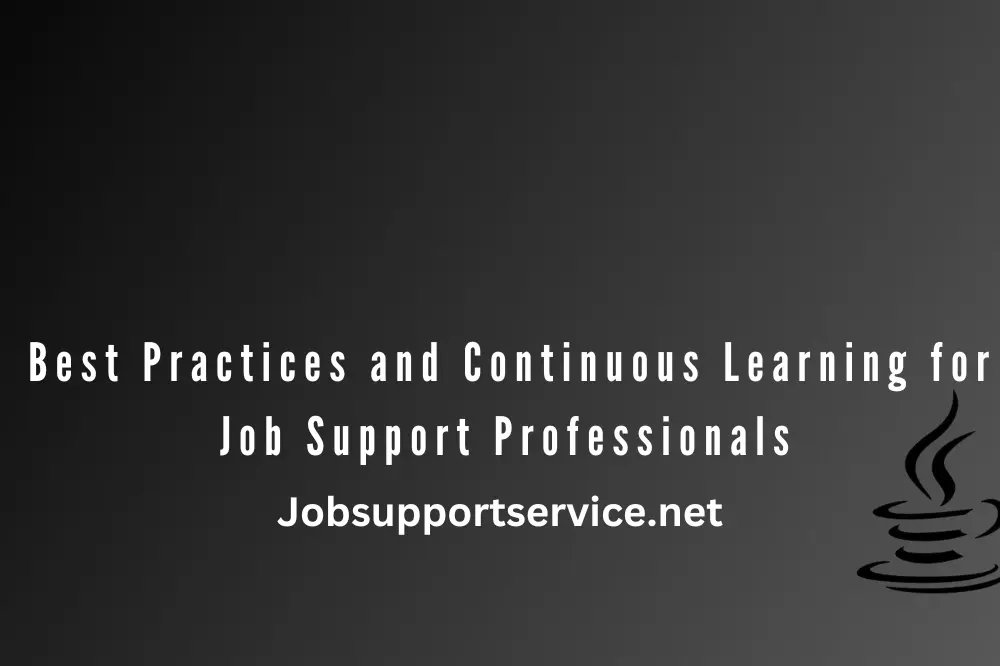Introduction
Definition of Loops in Java:
Loops in Java are iterative structures that enable the execution of a block of code repeatedly. This section provides a concise definition of loops, emphasizing their role in controlling the flow of a program through repetitive execution.
Significance of Looping Constructs in Full Stack Java Development:
Explore the broader significance of looping constructs in the context of Full Stack Java Development. Discuss how loops facilitate efficient handling of repetitive tasks, contributing to the overall functionality and responsiveness of applications.
Importance of Loop Proficiency in Java Full Stack Job Support:
Highlight the importance of loop proficiency for Java Full Stack job support professionals. Emphasize how a strong understanding of looping constructs enhances troubleshooting capabilities and aids in resolving issues efficiently.
Exploring Looping Constructs
Understanding the ‘for’ Loop and Its Applications:
Dive into the ‘for’ loop, a versatile construct for iterative operations. Explore its syntax, applications, and best practices, showcasing how it streamlines repetitive tasks in Full Stack Java Development.
Leveraging the ‘while’ Loop for Dynamic Iterations:
Explore the ‘while’ loop, a dynamic construct that iterates as long as a specified condition is true. Discuss scenarios where the ‘while’ loop is beneficial, and provide insights into its effective utilization in Full Stack Java applications.
Implementing the ‘do-while’ Loop for Guaranteed Execution:
Introduce the ‘do-while’ loop, emphasizing its unique characteristic of ensuring at least one execution. Discuss scenarios where the ‘do-while’ loop is suitable and provide examples of its application in Full Stack Java Development.
Java Full Stack Applications of Loops
Real-World Integration of Loops in Full Stack Development:
Illustrate how loops are integrated into real-world Full Stack Java applications. Provide examples of their usage in scenarios such as data processing, user input validation, and iterative operations within a Full Stack environment.
Addressing Common Challenges in Loop Implementations:
Discuss common challenges job support professionals may encounter when implementing loops in Full Stack Java Development. Provide strategies and solutions for troubleshooting and resolving issues efficiently.
Strategies for Efficient Problem-Solving in a Java Full Stack Job Support Context:
Offer strategies tailored for job support professionals to efficiently solve problems related to loop implementations. Emphasize systematic troubleshooting approaches and the role of loop logic in identifying and resolving issues in a Full Stack Java context.
Best Practices for Loop Implementation
Writing Clean and Readable Code with Loops:
Emphasize the importance of code readability when implementing loops. Discuss best practices such as meaningful variable names, proper indentation, and clear loop structures to enhance code maintainability.
Efficient Handling of Loop Termination Conditions:
Explore strategies for handling loop termination conditions effectively. Discuss the significance of defining clear and accurate termination criteria to avoid infinite loops and ensure the proper functioning of Full Stack Java applications.
Optimizing Performance in Iterative Processes:
Delve into performance optimization techniques in iterative processes. Discuss considerations such as algorithm efficiency, minimizing unnecessary iterations, and leveraging built-in functions to enhance the overall performance of loop implementations.
Job Support Tips and Resources
Quick Reference Guide for Looping Constructs:
Provide a concise quick reference guide summarizing key aspects of looping constructs. This guide serves as a handy tool for job support professionals, facilitating quick problem-solving and decision-making in Full Stack Java Development.
Online Resources and Communities for Continuous Learning in Java Full Stack:
Explore valuable online resources and communities where job support professionals can stay updated on looping constructs and related concepts. Highlight forums, documentation, and interactive platforms for ongoing learning.
Real-Life Job Support Scenarios and the Role of Loops in Problem Resolution:
Present real-life job support scenarios where efficient loop implementation plays a crucial role in problem resolution. Discuss how effective troubleshooting and optimization of loops contribute to successful outcomes in dynamic Full Stack Java environments.
Conclusion
Recap of the Crucial Role of Loops in Full Stack Java Development:
Summarize the fundamental role of loops in Full Stack Java Development, emphasizing their significance in achieving iterative functionality and streamlining code execution.
Encouragement for Job Support Professionals to Prioritize Continuous Learning, Particularly in the Context of Java Full Stack Looping Constructs:
Conclude by encouraging job support professionals to prioritize continuous learning, with a specific focus on mastering looping constructs in the ever-evolving landscape of Java Full Stack job support. Emphasize the dynamic nature of the field and the importance of staying updated for enhanced proficiency and problem-solving capabilities.
- Machine Learning Operations on GCP: Job Support Essentials - May 20, 2024
- Serverless Computing Support on GCP: Expert Advice - May 18, 2024
- Database Administration in GCP: Job Support Best Practices - May 17, 2024

